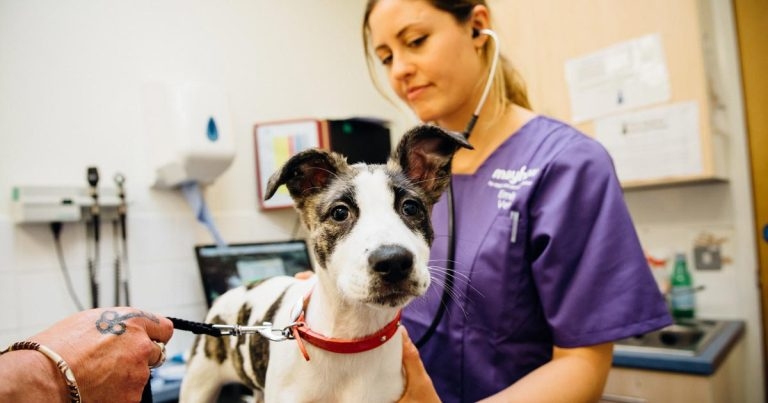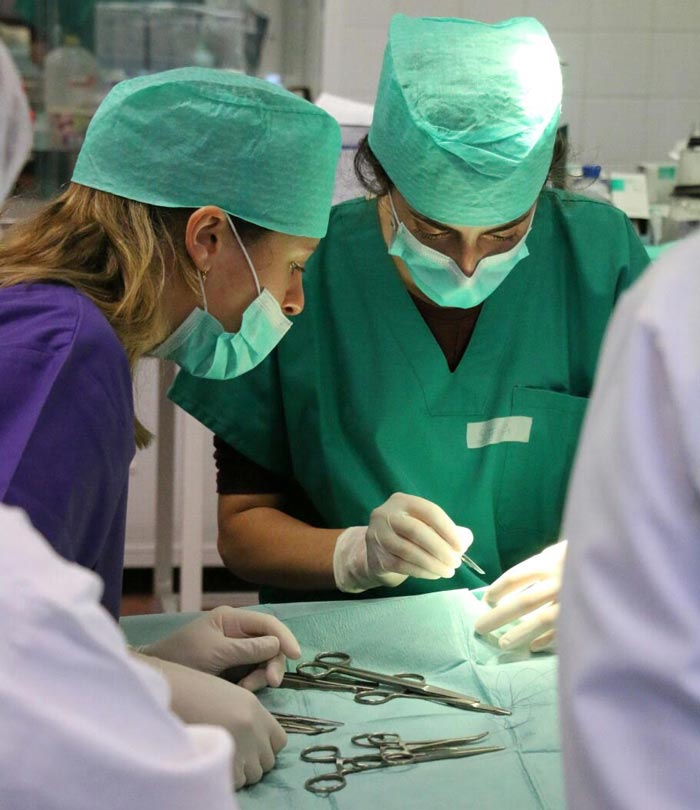11 May 2018
Emily Richardson, a veterinarian at welfare charity Mayhew, is surprised feline neutering is not a routine activity for most vets, and has been teaching in Portugal.

Mayhew vet Emily Richardson. Image © Mayhew
A vet has called on the profession to get involved in neutering projects in Portugal, and play a part in helping stray dogs and cats.
Emily Richardson, who works at animal welfare charity Mayhew, has come back form Lisbon after having delivered surgical training to colleagues, in a bid to enhance their understanding of – and skill set regarding – feline neutering.
Mayhew rescues and rehomes animals in north-west London, in addition to helping further afield by teaching international vets and providing long-term solutions to improve animal welfare.
The training course was organised by Mayhew head vet Ursula Goetz, in collaboration with International Cat Care.
It comprised a one-day introduction into neutering techniques to help improve feline trap-neuter-release projects, which are increasingly being used by the Portuguese municipalities to control feral cat populations.
Dr Goetz was joined by Mayhew senior VN Kelly David and Dr Richardson, who together taught almost 30 vets to perform flank spays and cat castrations.
They also spoke about good practice, including feline-friendly handling, safe anaesthetic protocols, monitoring anaesthetics, surgical preparation and postoperative care.

Dr Richardson, a recent graduate, said: “I was surprised to find feline neutering was not a routine activity for most vets I was teaching and, for some, this was the first neutering surgery they had undertaken.
“At times, I felt quite challenged; it was my first time teaching qualified vets abroad and I had not anticipated some individuals being surgically inexperienced.
“However, as the week progressed, I gained confidence in my teaching abilities. Initial apprehension disappeared and I really started to enjoy the experience of teaching.”
Portuguese legislation surrounding the culling of stray cats and dogs will change later this year, making it illegal to kill healthy stay cats and dogs as a means of reducing populations.
This means further surgical training courses will be required in Portugal to support vets during transition period, Dr Richardson said.
She added: “I would encourage other vets in the UK to get involved in neutering projects in Portugal in the near future.
“Indeed, there are many other parts of the world where the local vets would benefit from similar training.
“Teaching can be a highly enjoyable and rewarding experience in itself, and also helps develop your own veterinary skills, builds confidence and introduces you to different people, new experiences and exciting opportunities.
“Teaching also contributes greatly to the veterinary community and to animal welfare.”
To find out more about Mayhew’s international vet training, visit the charity’s website or telephone 020 8962 8000.